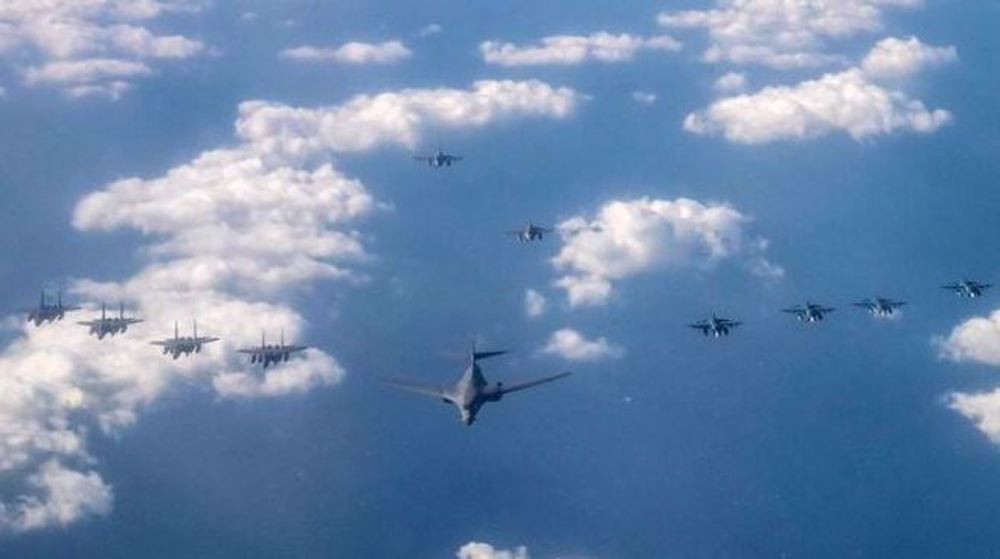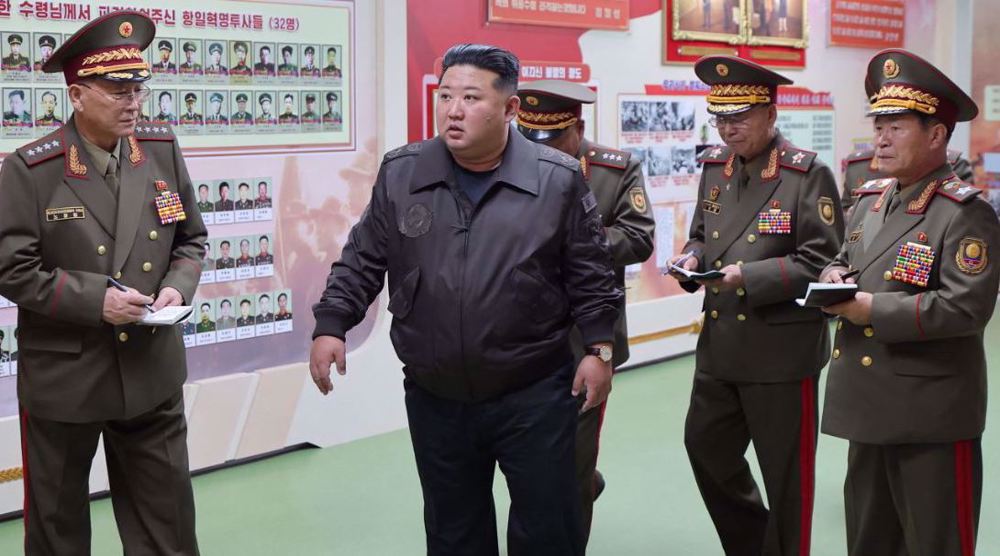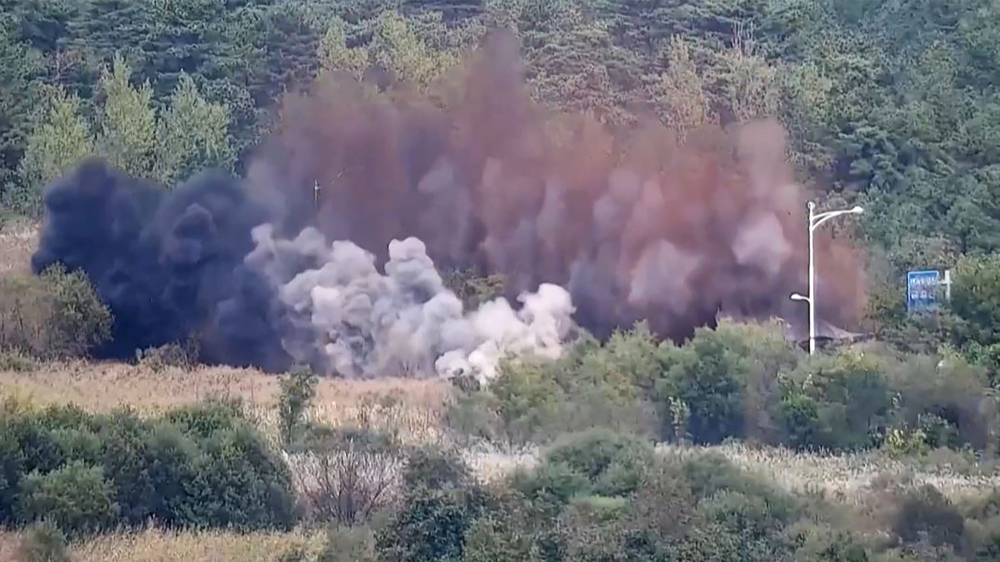North Korea: Nuclear tests will stop after US, South halt drills
North Korea says it will stop its nuclear tests on the condition that the US halts its annual military exercises with South Korea.
"It is really crucial for the United States government to withdraw its hostile policy against the DPRK and as an expression of this stop the military exercises, war exercises, in the Korean Peninsula. Then we will respond likewise," said North Korean Foreign Minister Ri Su-yong in an interview with the Associated Press in New York on Saturday.
He added that if the exercises stop "for some period, for some years…new opportunities may arise for the two countries and for the entire world as well."
In March, the US and South Korea began massive war games involving more than 17,000 American and 300,000 South Korean troops, with warships and aircraft carrying out live-fire drills in the region.

Ri also defended his country’s rights to maintain a nuclear deterrent, warning that the North would not be browbeaten by international sanctions.
"If they believe they can actually frustrate us with sanctions, they are totally mistaken," he added. "The more pressure you put on to something, the more emotionally you react to stand up against it. And this is important for the American policymakers to be aware of."
"If we continue on this path of confrontation, this will lead to very catastrophic results, not only for the two countries but for the whole world as well," he noted.
In March, the UN Security Council unanimously passed a resolution expanding existing sanctions on the North over its missile and nuclear tests.
"A country as small as the DPRK cannot actually be a threat to the US or to the world," Ri added. "How great would it be if the world were to say to the United States and the American government not to conduct any more military exercises in the Korean Peninsula ... But there is not a single country that says this to the US."
Ri‘s remarks were made just hours after South Korean Defense Ministry’s announcement that the North had carried out a submarine-launched ballistic missile test, which failed after flying 30 kilometers (18 miles) in the Sea of Japan.
But North Korea claims the test was “another great success” that “fully confirmed and reinforced the reliability of the Korean-style underwater launching system and perfectly met all technical requirements for carrying out ... underwater attack operation.”
"The successful test-fire would help remarkably bolster the underwater operational capability of the KPA (North Korean military) navy…that it is now capable of hitting the heads of the South Korean puppet forces and the US imperialists anytime as it pleases," the North's official news agency KCNA quoted North Korea's leader Kim Jong-un as saying.
On January 6, North Korea said it had successfully detonated a hydrogen bomb, its fourth nuclear test, vowing to build up its nuclear program as deterrence against potential aggression from the US and its regional allies.
A month later, Pyongyang launched a long-range rocket which it said placed an earth observation satellite into orbit. However, Washington and Seoul denounced it as a cover for an intercontinental ballistic missile test.
"These big countries alone or together are telling us that we should calm down," Ri said. "For us this is like a sentence, that we should accept our death and refuse our right to sovereignty."
Israeli forces kill 7 more Palestinians in West Bank
Israel’s Netanyahu dismisses military affairs minister Gallant
Hezbollah attacks turn Israel’s Haifa into a ghost town
Iran’s FM meets Pakistani PM, discusses bilateral ties, Israeli atrocities
Iran ramps up gasoline output amid rising demand
UK foreign secretary under pressure over denial of genocide in Gaza
VIDEO | Press TV's news headlines
Hezbollah bombards explosives factory in occupied territories













 This makes it easy to access the Press TV website
This makes it easy to access the Press TV website